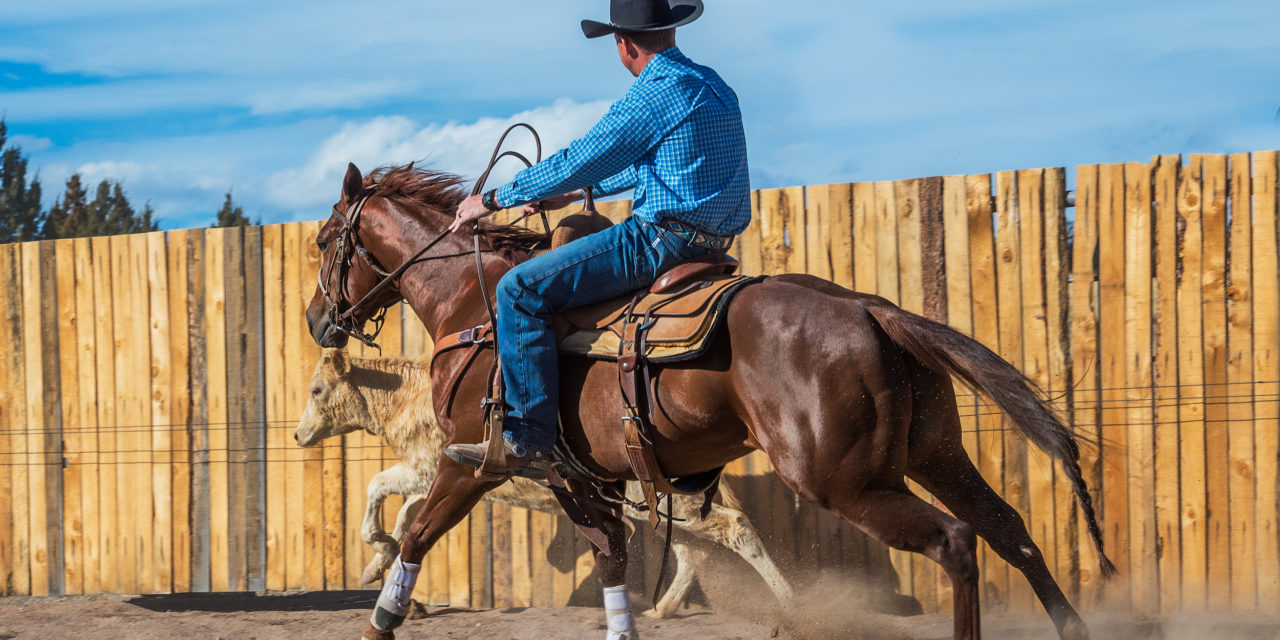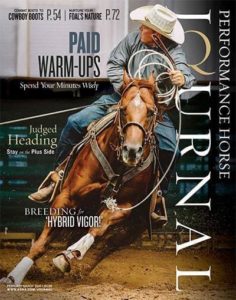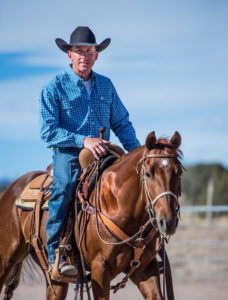
Taylor Gillespie and Micks Rey
In the recent publication of the American Quarter Horse Associations (AQHA) Performance Horse Journal, is my latest article: “From Combat Boots to Cowboy Boots.” This story took time coming to fruition, but it was worth it. The narrative came with a lesson in decision making, as well as some skill building in perseverance.
Taylor Gillespie is a good friend, and I was honored when he agreed to tell me his story. I called him on the phone, and the proposition went something like this:
“Hey, Taylor, it’s Jennifer.”
“Hi Jen, what’s up?”
“Well, not much. I wanted to run something by you.”
I’m sure that he said something like, “sure, shoot,”
“Um, I like to write stories, and I’m taking a class on writing Creative Non-Fiction. What would you think about being interviewed? The story would be about your unique history of growing up as youth kid in the horse deal, off to college for political science, off to war, and then ‘I wanna train horses for a living.’ What do you think?”
I believe he said something like, “sure, sounds good” in a light-hearted, Taylor fashion, but I wasn’t done convincing him or myself that this was a good idea; so I rambled on.
“I need the story for the class, but ultimately, we could look forward to submitting it to AQHA’s Performance Horse Journal. I could have my friend Kim take some pictures, it might be really cool!”

My 2016 “DECISION” to write
This conversation was in January of 2017. Eventually, we did the interview at a mexican restaurant with cervezas for Taylor and tequila for me. It was so fun! We laughed and talked for over three hours. Now here we are, just over one year later. I want to thank Betsy Lynch for making my article beautiful; the bones of this article are mine; Betsy made it concise and rearranged it for flow and dare I say, gave it a little grace. Kim Nordby’s photography added vivid color and helped to capture Taylor at his best on a beautiful Colorado day.
In October of 2016, I made a plan, and set a goal to write a piece and post it on my website at least once monthly, if not twice. I was all excited and really into sharing my writing with others. I was putting myself out there and being brave, trying to come out of my proverbial shell. I had made a no-nonsense decision to write; or at least I thought I had.
“So often, we pretend we’ve made a decision,
when what we’ve really done is signed up to try
until it gets too uncomfortable.” ~Jen Sincero
With the decision to write, I knew I needed to get better and continue honing my craft. I looked for a class to join and found a Creative Non-Fiction course that focused on how to interview, scene building, and using quotes from your subject. This seemed ideal for the magazine because telling unique stories of the people in the performance horse industry is one of their objectives. My task was to find an interesting person with a story to tell and practice on them in the class.
To me, Taylor’s story was interesting, because when he graduated from college, he was following the path I assumed he would walk. As a young teenage boy, he was always involved in student government, and he participated in the government piece of the equine associations for youth kids as well. I often joked with him that someday he would lead our country and called him the perfect politician because he was very diplomatic. It was all in fun, but watching him cross the stage in his cap and gown, with a degree in Political Science, at the University of Saint Mary’s, and listening to his Student Body Presidential speech, made me very proud; I thought, “huh, just maybe.” But then Taylor did an about face upon leaving the military, and I wondered what changed his mind. I mean, I get leaving the military, but deciding to train horses instead of being an attorney specializing in Constitutional Law, who could make some money—that, I needed to know more about, because really, he could have been an attorney, and rode horses for fun!
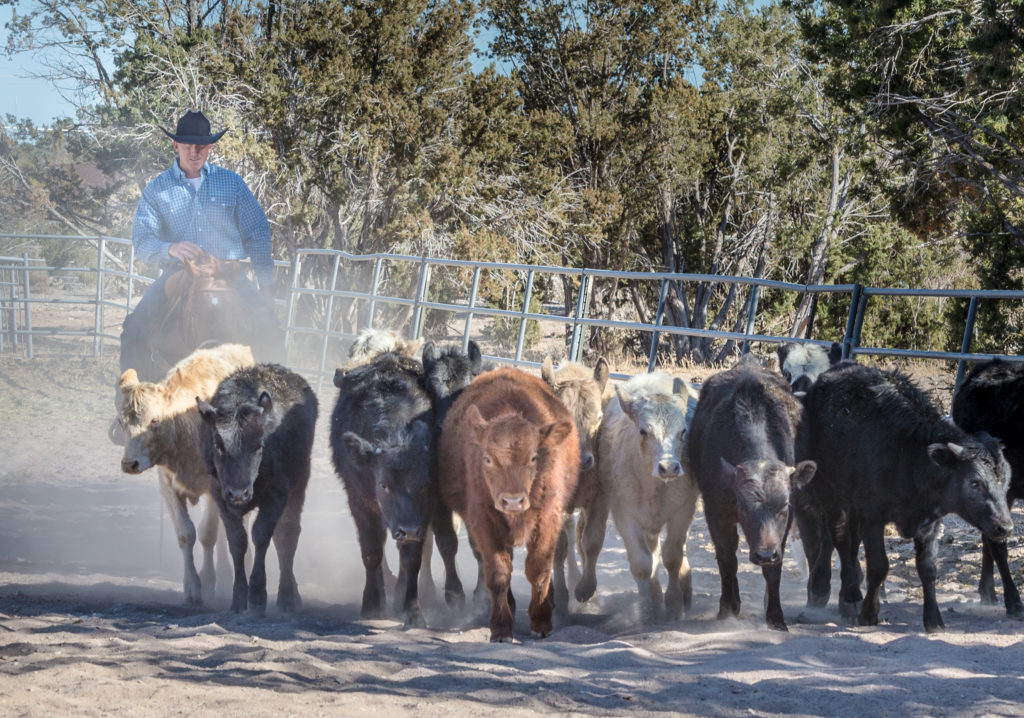
When Taylor agreed to be a willing participant, I set to work creating a set of interview questions using the suggestions from the course rubric and got down to business.
After several days of class, I had a first draft ready for review and sent off 4700 words to the professor. When it came back, the document contained 7500 words, which indicated that the professor had plenty to say about my draft, and I was getting my money’s worth out of the course.
I read everything he had to say and took it in stride. When I finished I said to my boyfriend, “All constructive criticism, and he even said some nice things in the beginning.”
After that, I didn’t join the online class or look at the article for 20 days. Every time I even considered looking at it feelings of embarrassment and confusion set in, keeping me from moving forward. I had just spent hours, days really, crafting this story with care and knew it wasn’t perfect, because first drafts never are. I didn’t not know however that I failed to relate one central idea for the story.
When I finally reengaged, I emailed the professor, complemented him profusely on his critique, and then I explained to him why I thought he was wrong. He was very gracious, in further explanations as to why he was, in fact, correct.
The professor noted that the draft lacked meaning; I had demonstrated that Taylor was a soldier, and I shared some excitement in the scenes, but I never said “Taylor was a soldier, he is now a horse trainer and this matters to the reader, because…..”
The professor asked, “what makes him new, different, special, and worth writing about?”
I answered, “being in the military, being a war veteran, practicing student government, graduating at the top of his class in college: The horse trainers I know didn’t take that path, it is unconventional.”
After some back and forth I was finally able to understand what the professor was asking for. I should say, after I was able to compartmentalize my hurt feelings and read his comments with more clarity, I was able to think through what he was saying. Eventually, I understood he wanted me to show and tell the reader why it would be worth their time to read about this character. What did he learn or do, or what changed for him to make such a dramatic turn in his life, and ultimately, how has his past experience affected his new life?
When the professor wrote, “You write a fine sentence and a mean paragraph. But the spine of this story is somehow missing,” I was crushed.
Previously I had been told that I was a very strong technical writer, however my story read like a book report. These both felt like back-handed complements to me. I didn’t have the courage to just say “thank you, at least I have that covered, and now I can get down to the business of accomplishing the full task.” No, it was easier to be offended, discouraged, and hide from the task at hand.
It’s difficult to be told that you are good, but not good enough, and even more difficult to understand that those teachers, editors, and critics are trying to teach you and move you forward. Instead of latching onto this teaching and flourishing, I fought against it, wasting the precious resource that I had paid for.
Eventually, I did manage to compose myself, take the professor’s advice and revise my draft, indeed making it a stronger story—even I could see that. I attempted to create a central idea and tie things together more thoroughly. Unfortunately, I didn’t end up completing the course. If I really explore the why of that, I find an age-old problem for me: I was seeking approval and not really getting it. So instead of risking another round of critique and revision from the professor, I revised heartily and sent my story to Betsy at PHJ with about 4000 words. She wrote back to let me know she had some suggestions regarding how to make it a better fit for the magazine, and in the meanwhile I would need to shave it down, considerably. More like 2000-2500 words.
Two months later, she wrote to see how I was coming along with a shorter draft. At that time, I realized it had been nearly 30 days since I had worked on the story at all. Luckily, I had taken the time to shorten it, I just had not spent much time polishing.
Somehow this piece got to be bigger than me, and I just did not want to face it. In fact, I was so discouraged I had stopped writing anything. Fortunately for me, Betsy had not given up on me or the story.
Over time, and with help from Betsy, the story became the article in the magazine. Also, through the process, I forgave myself for not writing the perfect story the first time and found some gratitude for the people trying so hard to help me succeed.
I have not written much for almost a year. I am working on a new story for the PHJ and I’m excited to submit it. I also found myself writing the beginning of a fiction novel which is all new for me, because I’ve never really been one for making stuff up. Looking back over the notes and comments from my class over a year ago, I am thankful to have had the experience, but wish I had handled it better. I am forgiving myself for that as well.
In the last few months I have missed writing and have wanted to get back to it. I’ve discovered an energy that comes from not only the act of writing, but by interviewing subjects, and getting published. It just feels good!
I was recently asked what the purpose is, or what do I get out of it. The answer is fulfillment; I just like doing it. I am looking forward to sharing more stories, learning more about the craft, and building my readership. My decision to write is clear to me, and I feel better equipped to handle obstacles in my path that make me uncomfortable. In the 2000 words that were cut from Taylor’s narrative, I found an excerpt, with a poignant lesson:
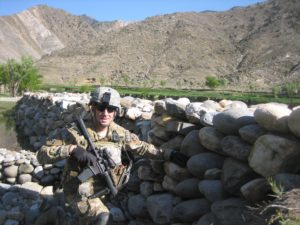
Captain Taylor Gillespie in Afghanistan
At age 25, he had been trained to communicate, navigate, lead, negotiate, and defend. Defend his men, defend his country, and defend his life.
“All the training in the world cannot prepare you for the first time a bullet cracks past your head,” recalled Taylor.
As the first bullet went zinging by, Taylor wondered if it was real. One second felt like 5 minutes. Falling back on endless hours of training, focus and clarity came from within, because it was drilled in to him “over and over and over again,” he said.
As a soldier, he was fine-tuned when he reached the battle field. Even as a first timer, he knew how to draw deep from the core and actuate the guidance drilled into him as a young cadet. That first bullet signified the first of many fire fights that Gillespie commanded and survived in 2009.
Taylor and his men did not sign up to try until it got uncomfortable, they were in it to win it. They made a decision to fight for their country, and when it got real, they stayed hooked until their time was up.
At the risk of sounding cliché, we are the Land of the Free, because of the Brave. Because the men and women of our armed forces make a decision to volunteer not only their time, but sometimes their lives, the rest of us are free to do whatever we choose. We can ride and train horses, be Olympic athletes, drive race cars, be moms & dads, or we can practice our art—sometimes writing stories—and all we must do to be successful is decide and stay hooked when that first metaphorical bullet cracks past our head. We have a choice to dig deep and get through the fight, or retreat.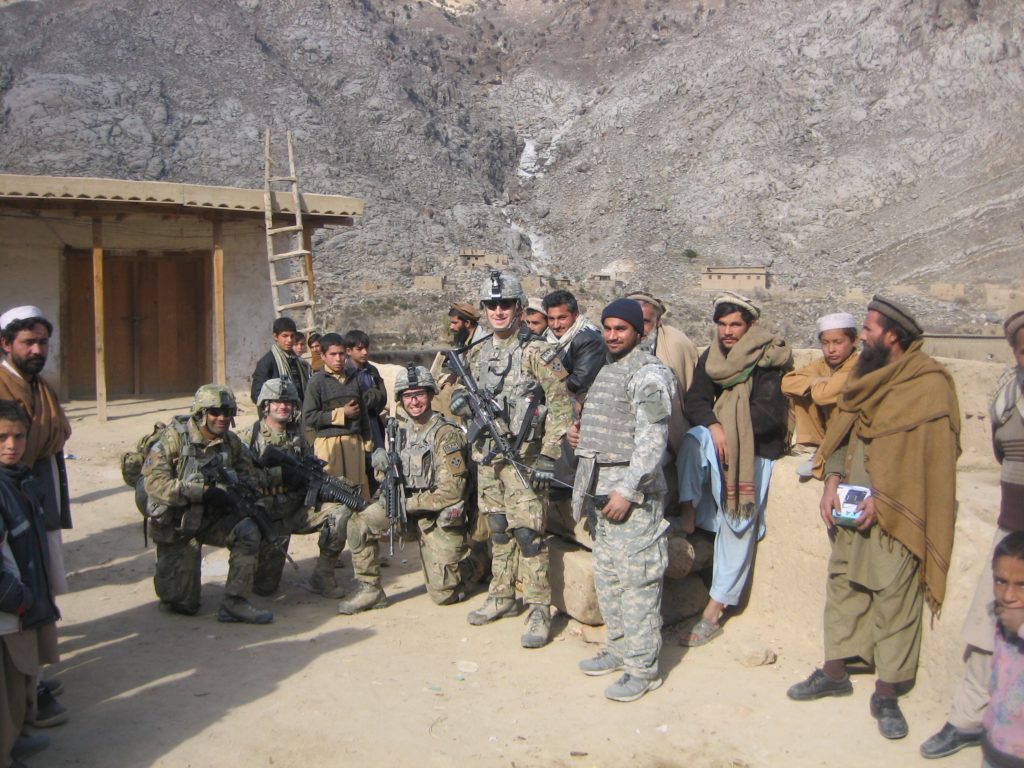
It appears that I spent a year in retreat, but while I was there I went into training, so that I am now prepared to withstand the firefight. I’m here to write, I have decided.
I appreciate your time, and I value your feedback. Please take a moment to rate or share this article below. Don’t forget to subscribe by leaving your email address, so you never miss a story ~ I’m writing for us!
Your comments are also welcome. All the best to you! Until next time ~ Jennifer

